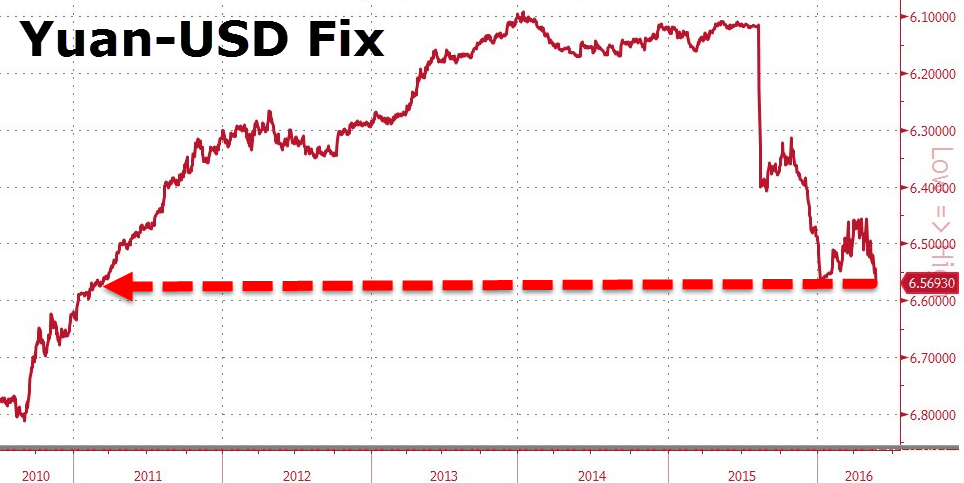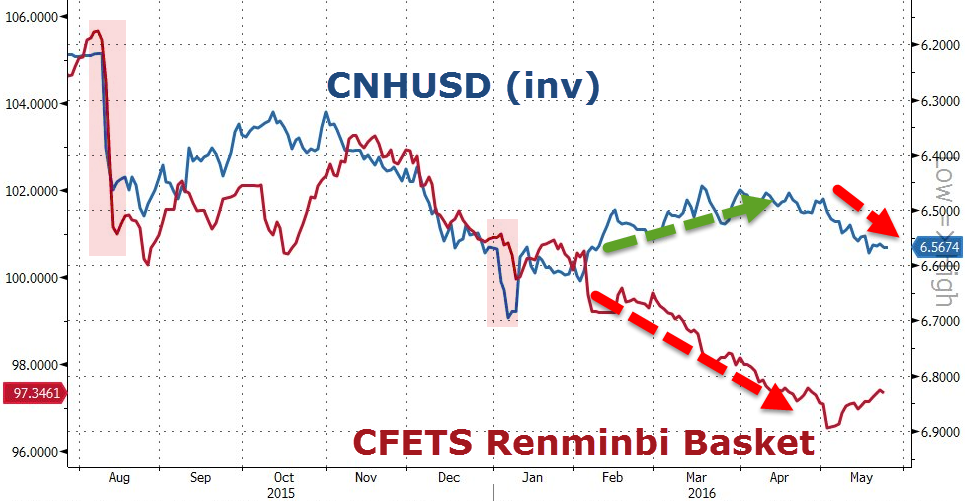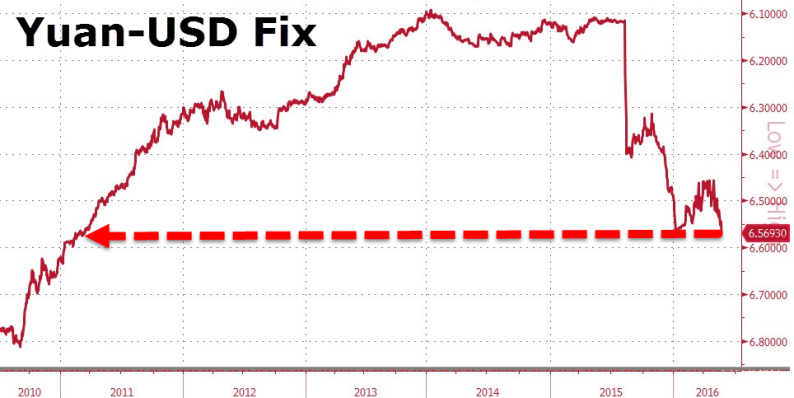After a brief hiatus from the ongoing currency wars, China fired another salvo at The Fed tonight by devaluing the Yuan fix to 6.5693 – its weakest against the USD since March 2011. After eight days higher in a row for The USD Index, it seems PBOC has turned its currency liberalization plan off, stabilizing the broad Renminbi basket (which has been steadily devalued) and turning its attention to devaluing against the USD. Having unleashed turmoil in August (pre-Sept FOMC) and January (post Dec rate-hike), it appears the rising rate-hike probabilities jawboned by The Fed are decidedly disagreeable to “authoritative persons” in China.
The Yuan Fix was driven down to March 2011 lows…

Front-running?
“It could be because the authorities want to alleviate some of the depreciation pressure before the Fed interest rate decision in June,” said Christy Tan, head of markets strategy at National Australia Bank Ltd. in Hong Kong. “If there are signs of panic dollar buying, the PBOC will step in.”
As it seems maintaining some ‘stability’ against the USD has lost its appeal as the USD surges once again…

What the chart above shows is that the Chinese currency (red) has been devaluing in an orderly and quiet manner for much of the year while maintaining the appearance of stability against the USD (blue). That appears to have changed now and the last time turmoil started to ripple through the CNHUSD markets – it didn’t stop until Tom Cook lied to Jim Cramer and The PPT rescued the world.
The irony of the apparent stability in the broad-based Renminbi basket (while devaluing against the USD) is that it comes after a desperate China has reportedly given up on its liberalization goals. As The Wall Street Journal notes,
Behind closed doors in March, some of China’s most prominent economists and bankers bluntly asked the People’s Bank of China to stop fighting the financial markets and let the value of the nation’s currency fall.
They got nowhere. “The primary task is to maintain stability,” said one central-bank official, according to previously undisclosed minutes of the meeting reviewed by The Wall Street Journal.
The meeting left little doubt China’s top leaders have lost interest in a major policy shift announced in a surprise move just nine months ago. In August 2015, the PBOC said it would make the yuan’s value more market-based, an important step in liberalizing the world’s second-largest economy.













Leave A Comment